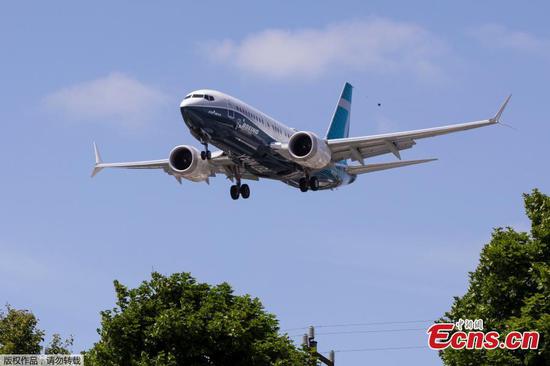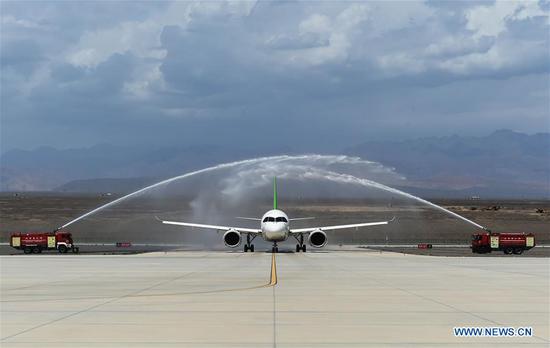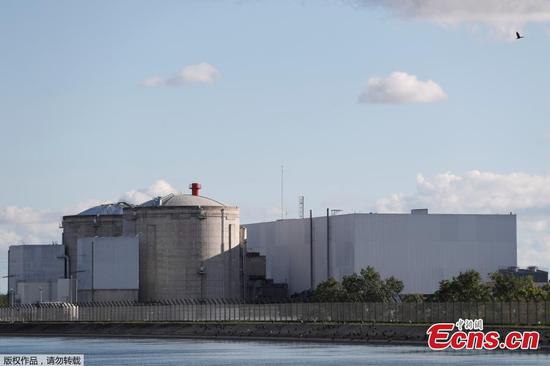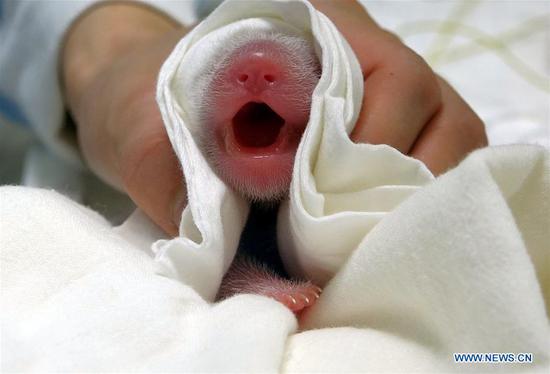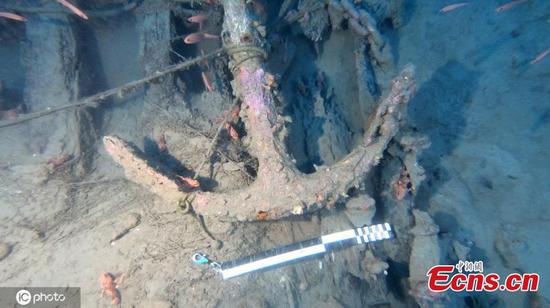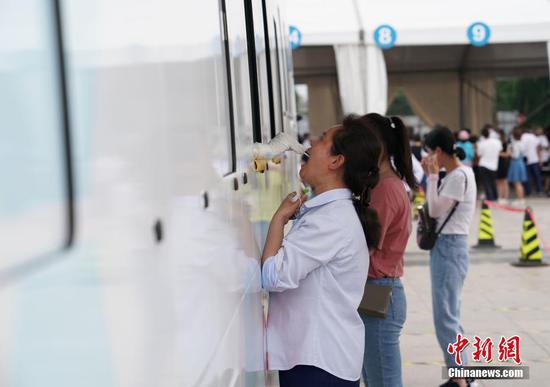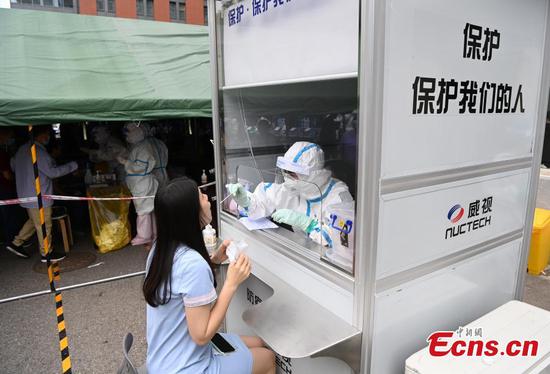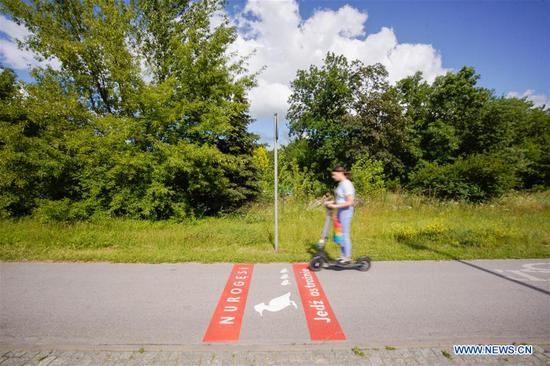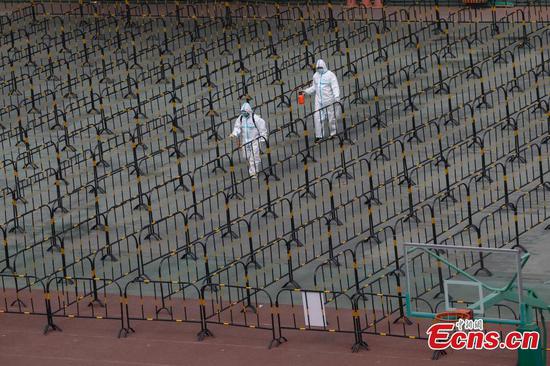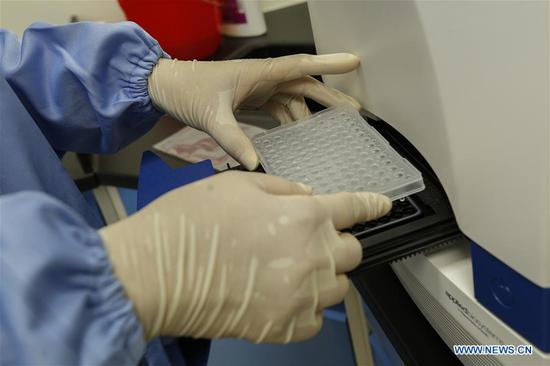The decision by the US Federal Aviation Administration (FAA) to begin testing the Boeing 737 MAX's flight control system Monday is the first step for the jet's recertification process, but it's still likely to be months before the plane returns to commercial service.
Next comes pilot training, including changes to flight simulators and the distribution of updated operations manuals.
"The FAA is following a deliberate process and will take the time it needs to thoroughly review Boeing's work," the agency said in a statement.
"We will lift the grounding order only after we are satisfied that the aircraft meets certification standards."
The first test flight took off from Seattle at about 10 am local time. The test flights are expected to last about three days.
In a statement, Boeing said: "We continue to work diligently on safely returning the MAX to service."
Boeing said it independently conducted about 2,000 hours of flight tests to assess the performance of the updated software prior to Monday's FAA-sanctioned flights.
About 800 MAX jets have been grounded, including 400 stored at Boeing sites because they weren't yet delivered to customers. At least two months will be needed to ready the grounded jets for service, analysts said.
The coronavirus pandemic has cut demand for air travel by as much as 90 percent. While traffic is increasing, it's unclear when there will be sufficient demand to return all grounded MAX jets to service.
Nevertheless, the inflight tests are a much-anticipated first step in getting the Boeing 737 MAX back in the air.
FAA Director Steve Dickson, a former military and commercial pilot, said he won't clear the 737 MAX for commercial flight until he personally flies the plane and tests the new software on a flight simulator. There is no deadline for approval.
The 737 MAX, Boeing's best-selling jet, has been grounded worldwide since March 2019 following crashes in Indonesia and Ethiopia that killed a total of 346 passengers and crew.
Investigators believe the MAX's automated anti-stall device, called Maneuvering Characteristics Augmentation System (MACS), overrode pilot commands, erroneously pointed the nose of the planes down to avoid a midair stall and into a fatal plunge.
The new fuel-efficient engines on the MAX are heavier than previous 737 engines and were therefore moved closer to the fuselage. That changed the aircraft's flight characteristics. At times, the nose of the plane could pitch up, leading to a midair stall. Boeing added the MCAS to compensate.
Boeing temporarily halted production of the MAX in January and resumed production in May.
Earlier this month, Boeing directed supplier Spirit AeroSystems to cut production of fuselages and parts for the 737 MAX for the third time this year, according to a filing with the US Securities and Exchange Commission.
Boeing said it now needs 37 MAX fuselages for the remainder of 2020, down from the 125 the company said it wanted in May. Initially, Boeing ordered 216 fuselages.
Spirit AeroSystems said it has completed 35 fuselages and announced plans to furlough workers. The 737 MAX bodies are built in Wichita, Kansas, and transported by rail to Boeing's plant near Seattle for final assembly.
Senate Commerce Committee Chairman Roger Wicker, a Republican from Mississippi, and Senator Maria Cantwell, a Democrat from Washington state,drafted a bill intended to reform the way the FAA certifies new aircraft.
If signed into law, the bill will empower the FAA to hire or fire workers at aircraft manufacturers involved in aircraft certification. The federal regulatory agency also would have the authority to appoint safety advisers.
Critics believe the FAA relied too heavily on Boeing engineers when certifying the MAX. But others say new technology quickly outpaces the ability of government regulators to evaluate it and therefore must rely on company experts.
In January, Boeing reported a loss of $636 million in 2019 compared with a profit of $10.46 billion in 2018 — its first annual loss in more than 20 years. Boeing suspended dividends in March. The CEO and chairman of the board agreed to forego pay through 2020.
Boeing's stock rose $24.48, or 14.4 percent, on news of the FAA's test flights and closed Monday at $194.49 a share. But that's still 50.3 percent below the 52-week high of $391.









